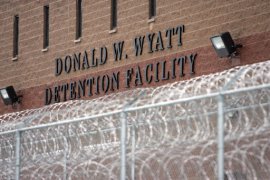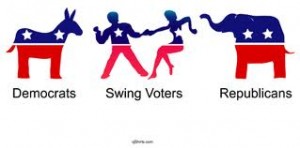 A coalition of seventeen organizations have recently embarked on a revolutionary voter registration drive, and what better place to be revolutionary than Philadelphia? The Returning Citizens Voter Movement is directed towards formerly incarcerated people, engaging many more people with felony records who never went to prison, and far more people without records who have a family member in the criminal justice system. Is this an effort that will be replicated around the nation in 2012?
A coalition of seventeen organizations have recently embarked on a revolutionary voter registration drive, and what better place to be revolutionary than Philadelphia? The Returning Citizens Voter Movement is directed towards formerly incarcerated people, engaging many more people with felony records who never went to prison, and far more people without records who have a family member in the criminal justice system. Is this an effort that will be replicated around the nation in 2012?
The goal of 10,000 new registrations may seem overly ambitious, but consider that at any given time, Philadelphia has between 200,000 – 400,000 residents who previously served time in prison. These are people who have the right to vote, and surely some do, but have collectively never been engaged in the political dialogue of their community. As Maelissa Gamble, founder of The Time Is Now to Make a Change puts it, “People are tired. They’re saying, ‘somebody should have done this already.’ And they are not seeing the re-entry resources that get talked about all the time.”
Gamble and other community leaders have been tangling not only with getting people assistance in restructuring their lives, but also in successfully tearing down the barriers that keep people from following their good intentions. Last year Philadelphia “Banned the Box” and eliminated “Have you ever been convicted from a felony?” from job applications in the city. It is ironic that the same government allocating funds for rehabilitation/re-entry also has laws that create ever-higher hurdles for people trying to build a life in the community.
With the Pennsylvania Republican Primary on April 24th (the same day as New York, Rhode Island, and Delaware) it will be interesting to see how this specific criminal justice-based civic outreach can be bolstered by the media. Former Pennsylvania Senator Rick Santorum has a history in Philadelphia, and his views on issues may be well known. Meanwhile, Texas Senator Ron Paul has been an outspoken critic of the Drug War and the massive use of incarceration in America. With the Texas and Wisconsin primaries on April 3rd, it is possible that Paul’s campaign will have a bounce that reverberates through three weeks of focus on Pennsylvania (a perennial “swing state”).
All but three of the coalition organizations in the voter registration and awareness campaign are led by formerly incarcerated people. This is part of a concerted effort by the Formerly Incarcerated and Convicted People’s Movement to register one million people across the country, and Philadelphia is leading the way. One historical dilemma with a broad movement is the creation of factions and the challenge of coalition-building. Gamble, formerly incarcerated herself, now finds herself in the middle of a group including the Human Rights Coalition, Proyecto Sol Filadelfia, ACLU, Reconstruction Inc., Educational Advocates Reaching Today’s Hardworking Students (EARTHS), and more.
It is often noted that over four million people are disenfranchised due to criminal records, however it should be also noted that there are tens of millions of people who are eligible to vote- people who have been (or still are) impacted by the criminal justice system. This is an issue-based group, with no party loyalties. The group is urban and rural, of all skin tones. And the voices are beginning to be heard.
Politicians will be knocking on doors of “Likely voters” registered to their parties or as “Independents.” If one is not registered and exercising their vote, there will be no knock, no pandering, no listening. The coalition will be setting up registration stations all over the city, from grocery stores to community forums, probation offices to social services locations, they will even be registering people currently awaiting trial in the jails. When thousands of voters demand candidates who will call a cease fire in the Drug War, who will re-direct that money into education, to books rather than bars, the pandering will begin. It is not likely that the GOP will hold an inner city debate with ordinary residents in the audience (these are made-for-TV controlled events); and it is not likely that Rick Santorum, Ron Paul, or Mitt Romney will come looking to do a “Town Hall” session with urban voters… but wait until 2016. Rebuild it, and they will come.
Maelissa Gamble can be contacted at (215) 834-5165 and mgamblethetimeisnowtomakeachange@yahoo.com



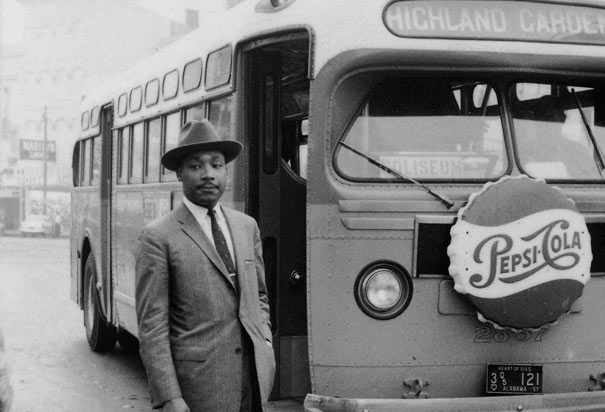
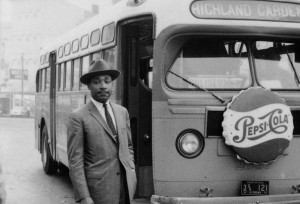


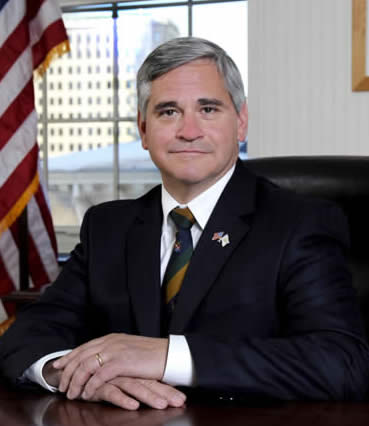
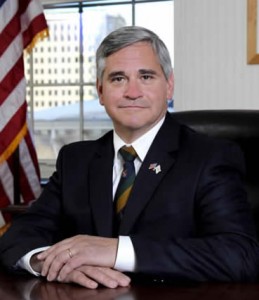 Attorney General Peter F. Kilmartin today announced the creation of the Rhode Island Criminal Justice Hall of Fame to honor outstanding professionals who have worked to improve and uphold the principles of the criminal justice system in Rhode Island. Kilmartin also announced the inaugural class of inductees to be honored at a reception on Thursday, January 12, 2012 at 5:00 p.m. at the Crowne Plaza Hotel in Warwick, RI.
Attorney General Peter F. Kilmartin today announced the creation of the Rhode Island Criminal Justice Hall of Fame to honor outstanding professionals who have worked to improve and uphold the principles of the criminal justice system in Rhode Island. Kilmartin also announced the inaugural class of inductees to be honored at a reception on Thursday, January 12, 2012 at 5:00 p.m. at the Crowne Plaza Hotel in Warwick, RI.